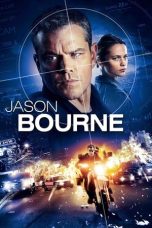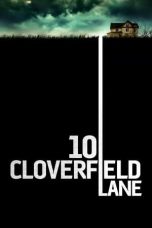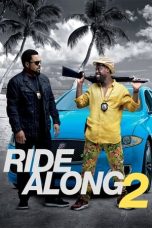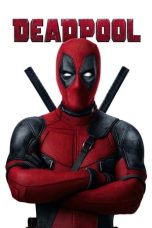- Source: UEFA Futsal Euro 2016
The 2016 UEFA Futsal Championship, commonly referred to as UEFA Futsal Euro 2016, was the 10th edition of the UEFA Futsal Championship, the biennial international futsal championship organised by UEFA for the men's national teams of Europe. It was hosted for the first time in Serbia, following a decision of the UEFA Executive Committee on 20 March 2012. Serbia was chosen ahead of other bids from Bulgaria and Macedonia.
The final tournament was contested from 2 to 13 February 2016 by twelve teams, eleven of which joined the hosts Serbia after overcoming a qualifying tournament. The matches were played in the Belgrade Arena in the city of Belgrade.
Qualification
A total of 46 UEFA nations entered the competition (including Scotland which entered for the first time), and with the hosts Serbia qualifying automatically, the other 45 teams competed in the qualifying competition to determine the remaining 11 spots in the final tournament. The qualifying competition, which took place from January to September 2015, consisted of three rounds:
Preliminary round: The 24 lowest-ranked teams were drawn into six groups of four teams. Each group was played in single round-robin format at one of the pre-selected hosts. The six group winners and the best runner-up advanced to the main round.
Main round: The 28 teams (21 highest-ranked teams and seven preliminary round qualifiers) were drawn into seven groups of four teams. Each group was played in single round-robin format at one of the pre-selected hosts. The seven group winners qualified directly to the final tournament, while the seven runners-up and the best third-placed team advanced to the play-offs.
Play-offs: The eight teams were drawn into four ties to play home-and-away two-legged matches to determine the last four qualified teams.
= Qualified teams
=The following 12 teams qualified for the final tournament.
= Final draw
=The final draw was held on 2 October 2015, 12:00 CEST (UTC+2), at the Belgrade Town Hall in Belgrade, Serbia, where former Serbian footballer Dejan Stanković was unveiled as the tournament ambassador and made the draw. The 12 teams were drawn into four groups of three teams. The teams were seeded according to their coefficient ranking, with the hosts Serbia (assigned to position A1 in the draw) and the title holders Italy automatically placed into Pot 1.
Each group contained one team from Pot 1, one team from Pot 2, and one team from Pot 3. For political reasons, Russia and Ukraine could not be drawn in the same group or in groups scheduled to be played on the same day (due to a potential clash of teams and clash of fans). Therefore, if Russia were drawn in Group B, Ukraine had to be drawn in Group C or D, and if Russia were drawn in Group C or D, Ukraine had to be drawn in Group A or B.
Venues
All matches were played at the Kombank Arena. During the course of the championship, the arena was renamed from Kombank Arena to Belgrade Arena, for sponsorship reasons. Originally the Pionir Arena was proposed to host group stage matches.
Squads
Each national team have to submit a squad of 14 players, two of whom must be goalkeepers. If a player is injured or ill severely enough to prevent his participation in the tournament before his team's first match, he can be replaced by another player.
Group stage
The schedule of the tournament was confirmed on 28 October 2015.
The group winners and runners-up advanced to the quarter-finals.
Tiebreakers
The teams were ranked according to points (3 points for a win, 1 point for a draw, 0 points for a loss). If two or more teams were equal on points on completion of the group matches, the following tie-breaking criteria were applied, in the order given, to determine the rankings:
Higher number of points obtained in the group matches played among the teams in question;
Superior goal difference resulting from the group matches played among the teams in question;
Higher number of goals scored in the group matches played among the teams in question;
If, after having applied criteria 1 to 3, teams still had an equal ranking, criteria 1 to 3 were reapplied exclusively to the group matches between the teams in question to determine their final rankings. If this procedure did not lead to a decision, criteria 5 to 9 applied;
Superior goal difference in all group matches;
Higher number of goals scored in all group matches;
If only two teams had the same number of points, and they were tied according to criteria 1 to 6 after having met in the last round of the group stage, their rankings were determined by a penalty shoot-out (not used if more than two teams had the same number of points, or if their rankings were not relevant for qualification for the next stage).
Lower disciplinary points total based only on yellow and red cards received in the group matches (red card = 3 points, yellow card = 1 point, expulsion for two yellow cards in one match = 3 points);
Drawing of lots.
All times were local, CET (UTC+1).
= Group A
== Group B
== Group C
== Group D
=Knockout stage
If a match was drawn after 40 minutes of regular play, an extra time consisting of two five-minute periods would be played. If teams were still leveled after extra time, a penalty shoot-out would be used to determine the winner. In the third place match, the extra time would be skipped and the decision would go directly to kicks from the penalty mark.
= Bracket
== Quarter-finals
== Semi-finals
== Third place match
== Final
=Final ranking
Goalscorers
6 goals
5 goals
4 goals
3 goals
2 goals
1 goal
1 own goal
Tomáš Koudelka (playing against Italy)
Péter Németh (playing against Spain)
Robinho (playing against Croatia)
Source: UEFA.com
Awards
Golden Player: Miguelín
Golden Shoe: Miguelín and Mario Rivillos, 6 goals, 4 assists (5 games)
Silver Shoe: Álex (Spain) 6 goals, 2 assists (5 games)
Bronze Shoe: Ricardinho 6 goals, 0 assists (3 games)
All-star squad:
Miodrag Aksentijević (goalkeeper)
Leo Higuita (goalkeeper)
Paco Sedano (goalkeeper)
Sergei Abramov
Álex
Douglas Júnior
Mladen Kocić
Leo Jaraguá
Gabriel Lima
Miguelín
Marko Perić
Ricardinho
Mario Rivillos
Robinho
Sponsorship
Broadcasters
Azerbaijan: CBC Sport
Brazil: Globosat
Caribbean: ESPN
Central America: ESPN
Europe: Eurosport
Hungary: MTV
Iran: Varzesh
Kazakhstan: Kazakhstan Radio and Television Corporation
Malaysia: Astro
Middle East and North Africa: beIN Sports
Mexico: ESPN Latin America
Portugal: TVI
Russia: Match TV
Serbia: RTS
South America: ESPN
Spain: Mega (Spanish television channel) (Atresmedia)
United States: ESPN (English) and ESPN Deportes (Spanish)
References
External links
Official website
UEFA Futsal EURO Serbia 2016, UEFA.com
Kata Kunci Pencarian:
- Kejuaraan Futsal UEFA
- Kejuaraan Futsal UEFA 2016
- Uni Sepak Bola Eropa
- Koefisien UEFA
- Tim nasional sepak bola Portugal
- Kejuaraan Futsal UEFA 2022
- Tim nasional futsal Azerbaijan
- FC Barcelona
- Tim nasional futsal Georgia
- Tim nasional futsal Finlandia
- UEFA Futsal Euro 2016
- UEFA Futsal Championship
- UEFA Futsal Euro 2016 qualifying
- UEFA Futsal Euro 2022
- Ricardinho (futsal player, born 1985)
- UEFA Futsal Euro 2018
- UEFA Futsal Euro 2016 squads
- UEFA Futsal Euro 2014
- UEFA Futsal Euro 2022 qualifying
- UEFA Women's Futsal Euro 2019
10 Cloverfield Lane (2016)
Central Intelligence (2016)
Rogue One: A Star Wars Story (2016)
No More Posts Available.
No more pages to load.














